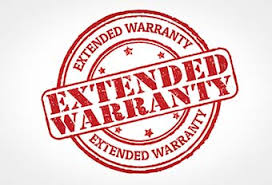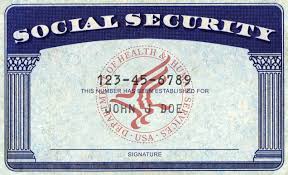 Call them extended warranties or call them service contracts. The question is: Are they worth what you pay for them? Such an arrangement provides for service and repairs beyond what is agreed to in the purchase price.
Call them extended warranties or call them service contracts. The question is: Are they worth what you pay for them? Such an arrangement provides for service and repairs beyond what is agreed to in the purchase price.
Obviously, it’s a gamble, the odds being whether the item you are considering will have problems before the contract ends so you can collect. You pay based on your expectations. The fact that manufacturers continue to offer extended warranties on their products is a clue. They aren’t losing money on the deal or they wouldn’t be doing it. Before you invest in an extended warranty, consider these facts:
The usual terms of an extended warranty offer service on the item for an additional three to four years, although they vary based on the expected life of the product. In practice, they make money for the seller, in some instances with a profit margin in excess of 200 percent. The agreement is not between you and the manufacturer, but between you and the seller.
Many extended warranties are never used. A poll taken several years ago by Angie’s List found that 61 percent of the respondents who had purchased such a warranty never used it. Actually, the chances of a product breaking during the period covered by the warranty is very small.
For instance, if you pay $200 for an extended warranty on your clothes dryer and have a repair that costs $150, the purveyor of the warranty is ahead of the game.
You might be better served to look for a product with a better initial warranty. Look into the expected life of the product. Almost everything has a range of longevity that a consumer can safely rely on. Not all brands of the same product have the same life expectancy, so you are wise to be specific. Examine consumer reports to determine which have proved to be the most trustworthy. The cost counts, too. An extended warranty with a $200 price tag obviously doesn’t make sense for a $99 camera.
Be sure that you fully understand the specifics of the extended warranty. On automobiles, for instance, it may exclude certain parts or repairs.
If you create an emergency funds category in your budget, you will have the money for repairs or replacement if needed. That takes the gamble out of it.
The four major credit cards, Visa, MasterCard, Discover and American Express, all offer extended warranties for products you purchase with their cards. In some instances, you can add another year at no cost.
Check with your state to see if it has “applied warrant of merchantability” provisions. The laws differ from one state to another, but they establish guidelines based on the assumption that a seller owes warrantability to the buyer. The expectation is that if you use the product in a reasonable and prudent manner, it should perform as the seller presented. You should be able to return a product that doesn’t live up to expectations to the dealer for a refund or replacement. If the gentle approach doesn’t work, you may have to enlist a lawyer, but weigh the expense of legal advice against the cost of the product.
Consider the cost of your product up front. A car is a very serious investment that may justify the price of an extended warranty. An inexpensive item such as camera or phone might go into the “disposable” column.
An extended warranty may be what you need in some instances. Just be certain that you have considered all the variables.




